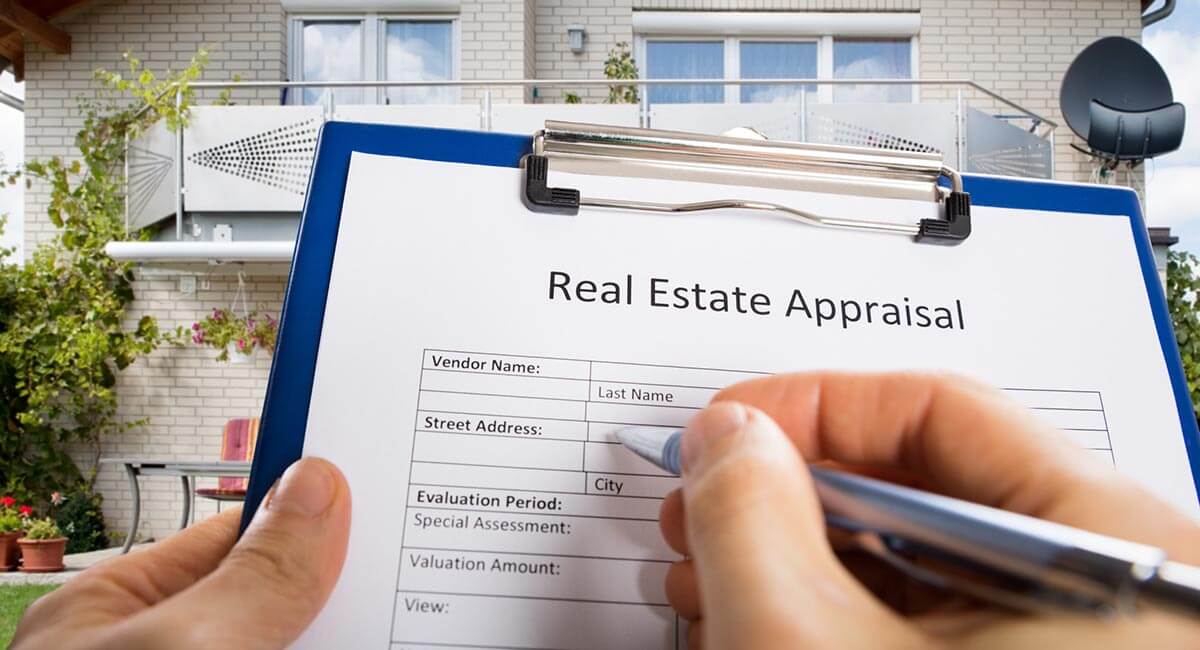Deciding what to do with the family home in the event of a divorce is a common concern. Many couples find themselves unprepared for the complexities of dealing with their property, which can put both parties at a disadvantage.
In this article, we’ll explain the importance of divorce appraisals, how they work, and why they matter. Whether one spouse remains living in the home, or you both agree to sell, understanding the true value of your property will be crucial for an equitable division of assets.
If you want a quicker way to determine your home’s value, consider using iBuyer.com. We provide online valuations and cash offers, so you can avoid additional stress during an already challenging time.
Divorce Appraisals
- House disposition in a divorce
- Why divorce appraisals matter
- Taxes and financial planning
- Why appraisals are better than the alternatives
- Choosing an appraiser
- What do divorce appraisals entail?
- Preparing for an appraisal
- Should you be present for home appraisal during divorce?
- The iBuying alternative
- Handling your home
Compare Cash Offers from Top Home Buyers. Delivered by Your Local iBuyer Certified Specialist.
One Expert, Multiple Offers, No Obligation.
House disposition in a divorce
What happens to your house when you get a divorce? At base, you and your spouse have two options.
First, one of you can remain in the house while the other moves out. Second, you can both move out and sell the house. Which of these options you choose depends on an array of factors.
- How much one or both of you loves the home
- The presence of children and your desire to maintain stability for them
- Your ability to afford and maintain the home on your own
- The involvement of divorce court judges in decision-making
- The tax and legal ramifications of selling the home
When one spouse remains in the home, they must “buyout” the other spouse. This can happen directly or indirectly.
In direct buyouts, the spouse keeping the house will often refinance the mortgage. This puts the house in their name alone and provides cash with which to pay off the other spouse for their portion of the home.
In indirect buyouts, the value of the house is assigned to the spouse who is keeping it. The other spouse then receives other marital assets of equal value in return.
When neither spouse wants to keep the home, they agree to sell it. The profits from the sale become marital assets that are then divided between the divorcing parties. In all cases, determining the actual value of the home in question is imperative.
Why divorce appraisals matter
For many couples, their family home is by far their largest shared asset. Like all other assets, its value must be divided fairly in order for the divorce to be equitable and viable. But couples, their lawyers, and the court cannot factor a home into divorce proceedings without knowing how much it is actually worth.
This is where divorce appraisals come in.
Qualified appraisers assess your home’s current market value. They examine your house and account for both its condition and external factors such as the state of your local market. With that information, they determine the real value of your home.
This figure allows everyone involved to ensure that both parties get their fair share of marital assets no matter what you do with the house.
Taxes and financial planning
Home appraisals also play a key role in your ability to plan for your post-divorce financial future. Many couples are not aware of the full impact of divorce on their tax situation.
If you sell your home for $500,000, for example, you do not necessarily get to split that total 50/50 with your spouse. In many cases, you will have to pay capital gains taxes first. The sale will count as income which must be accounted for and may change which tax bracket you fall in.
To make matters worse, getting a divorce can trigger a tax audit. As such, it is vital that you work with your lawyer and a financial advisor to:
- Make sure your finances are in order
- Protect yourself as much as possible from heavy taxes, fees, and other financial losses
- Create a realistic financial plan for your post-divorce life
Even the best professionals cannot help you do this in any useful way without a clear understanding of what your home is worth.
Why appraisals are better than the alternatives
Well-meaning friends or family may suggest that you use a comparative market analysis (CMA) instead of hiring a home appraiser. A CMA is a tool used by banks and real estate agents to assess the value of a home. A CMA can be cheaper than an appraisal.
CMAs are not equivalent to appraisals in quality, however. When performed by a bank, CMAs tend to skew low. When performed by real estate agents, they tend to skew high.
Regardless of who performs them, CMAs do not qualify as official legal estimates for the purposes of divorce proceedings. You must have your home appraised by a qualified appraiser as part of the divorce process.
Choosing an appraiser
In a best case scenario, both spouses will agree on one home appraiser. Your divorce attorney can recommend qualified local appraisers to do the job.
If you cannot agree on an appraiser, the court may choose one for you. Alternatively, you and your spouse may each hire independent appraisers. If they do not reach the same valuation for your house, the court may average the two figures and use the resulting number when making determinations.
What do divorce appraisals entail?
What do appraisers look for? Divorce appraisals are similar to the standard appraisal you would expect when selling your home.
Appraisers will likely use the Uniform Residential Appraisal Report or a variation thereof. This enables them to account for:
- Local demographics and housing trends
- Utilities
- Home measurements, including lot size
- Property condition
- Any unique elements in play
Your appraiser will walk through your home and property, inside and out. They will complete their form and take photos. Depending on the size and condition of your property, this can take between 30 minutes and several hours.
They will note:
- Facts such as your home’s size, age, and location
- Basic features such as the type and number of rooms
- The number and types of appliances you have
- The quality of your home’s construction, including the state of the roof
- Any health and safety concerns they find
- Places where your home is not up to code
All of these factors influence your home’s value and marketability.
Appraisals cost around $500 but may cost more in areas with high costs of living or if you have a complex property. You should see the results of the appraisal seven to ten days after inspection.
Preparing for an appraisal
Your home is an asset. The higher its appraised value, the most you are entitled to at the negotiating table. This is particularly important if you are not remaining in the home but your spouse is.
While you cannot change your home’s actual value, you can take steps to ensure that the appraiser sees and accounts for its best features in their assessment. To prepare for an appraisal:
- Clean and declutter your home as much as possible, including your garage, basement, and attic
- Make any small repairs that your home needs, such as fixing leaky faucets or touching up paint
- Clean up yard debris and tidy outdoor spaces
Consider contacting a realtor who specializes in appraisals for a divorce for assistance. They will have valuable knowledge on local home trends that can influence your choices and priorities. They may be able to walk through and point out simple changes or touches that can help you present your home at its best, as well.
Who pays for home appraisal during divorce?
If you and your spouse can agree on a home appraiser, then you should split the cost. If you cannot agree, then you may each have to hire and pay for your own appraisal.
If your spouse will not agree to split the cost, you will need to hire an appraiser yourself anyway. Your lawyer can then petition for the court to require your spouse to pay their portion of the cost during your divorce proceedings.
Should you be present for home appraisal during divorce?
There are no hard-and-fast rules about homeowners being present during an appraisal. It helps to have someone available to answer appraiser questions, but you do not have to do so yourself. Your lawyer or real estate agent can do it for you, for example.
If you stay, it is important to:
- Stay out of the appraiser’s way and out of their photos
- Provide only accurate, unbiased information
- Not distract the appraiser with unhelpful or irrelevant chit chat
If your spouse or their representative intends to be present during the inspection, you may want to have your own represenative present, as well. This can ensure the appraiser does not get inaccurate or biased information during their visit.
The iBuying alternative
If the idea of searching for “home appraisers near me” and slogging through the traditional appraisal process feels overwhelming, you will be pleased to learn that there is an alternative. Under the iBuying program, you can get an appraisal online in seconds.
An iBuyer will then offer to purchase your home in cash. If you accept the offer, they may even help pay for your moving expenses.
This quick and easy valuation and sale process can completely alter your home-selling experience. It can:
- Radically reduce the amount of time involved in getting your home sold and your divorce negotiated
- Save you hundreds of dollars on preparing and paying for an appraisal
- Save you thousands in lawyer and financial advisor fees by simplifying your financial situation
- Prevent appraisal bias and conflict with your spouse
Handling your home
Don’t get your divorce without a proper divorce appraisal on your home. Check out iBuyer’s home valuation process today and learn more about how we can help you save time and money while getting the most for your home.




